February 8 stands as one of history’s most eventful days, witnessing the rise and fall of empires, groundbreaking discoveries, and moments that shaped our modern world across centuries of human achievement.
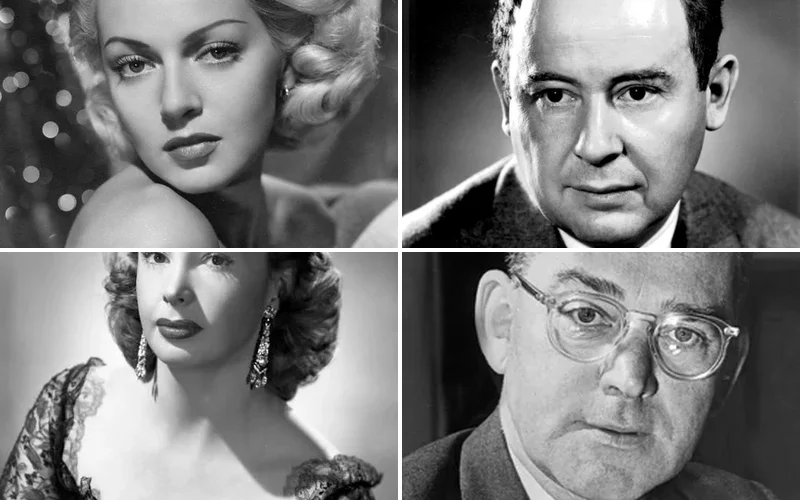
Politics and Government Events on February 8
1904 – Russo-Japanese War Begins with Port Arthur Attack
Japanese naval forces launched a devastating surprise attack against Russian-controlled Port Arthur, marking the beginning of the Russo-Japanese War. This bold military action demonstrated Japan’s emerging power on the world stage.
The attack caught Russian forces completely unprepared and established Japan as a formidable naval power. This conflict would reshape the balance of power in East Asia and signal the decline of Russian influence in the region.
1946 – North Korea’s Political Transformation
The People’s Republic of Korea dissolved in the North as communist forces consolidated power. The newly established Provisional People’s Committee of North Korea marked a decisive shift toward communist governance.
This political reorganization laid the foundation for decades of authoritarian rule. The change represented a critical moment in Korea’s division into separate political systems.
1950 – East German Secret Police Established
The notorious Stasi secret police organization began operations in East Germany. This state security apparatus would become one of the most extensive surveillance systems in modern history.
The Stasi’s creation marked the beginning of systematic oppression and monitoring of East German citizens. Their activities would profoundly impact daily life behind the Iron Curtain for four decades.
1960 – Royal House Name Declaration

Queen Elizabeth II issued a historic Order-in-Council proclaiming the House of Windsor’s continuation while declaring her descendants would bear the name Mountbatten-Windsor. This royal decree balanced tradition with modern constitutional monarchy.
The decision represented a compromise between maintaining royal tradition and acknowledging Prince Philip’s lineage. This change would affect the naming conventions for future generations of the British royal family.
1963 – Iraqi Government Overthrown
The Ba’ath Party successfully overthrew Prime Minister Abd al-Karim Qasim’s regime in Iraq through a military coup. This dramatic political change brought new leadership to the strategically important Middle Eastern nation.
The coup represented a significant shift in Iraq’s political landscape and regional alignment. This event would have lasting consequences for Iraqi politics and Middle Eastern geopolitics.
1971 – South Vietnamese Laos Incursion
South Vietnamese ground forces launched a major military incursion into Laos to disrupt the Ho Chi Minh Trail. This cross-border operation aimed to cut off communist supply lines and infiltration routes.
The military action demonstrated South Vietnam’s attempt to take initiative in the broader conflict. However, the operation faced significant challenges and highlighted the complexity of the Vietnam War.
Military and Naval History on February 8
1904 – Dutch Colonial Military Campaign

General G.C.E. van Daalen led the Dutch Colonial Army’s Marechaussee regiment in a brutal military campaign across Northern Sumatra. This colonial operation resulted in thousands of civilian casualties in the Dutch East Indies.
The campaign demonstrated the harsh realities of colonial rule and indigenous resistance. These military actions reflected the broader pattern of European colonial expansion and its devastating impact on local populations.
1942 – Japanese Invasion of Singapore
Japanese forces launched their assault on Singapore, Britain’s supposedly impregnable fortress in Southeast Asia. This military operation would become one of the most significant defeats in British military history.
The invasion marked a turning point in the Pacific War and demonstrated Japan’s military capabilities. Singapore’s fall would shock the Allied powers and reshape the strategic situation in the Pacific Theater.
1945 – Operation Veritable Commences
British and Canadian forces launched Operation Veritable to clear German forces from territory between the Maas and Rhine rivers. This major Allied offensive represented a crucial phase in the liberation of Western Europe.
The operation involved extensive planning and coordination between Allied forces. Success would open pathways for the final push into Germany and contribute to the Nazi regime’s eventual collapse.
1945 – Daring POW Escape
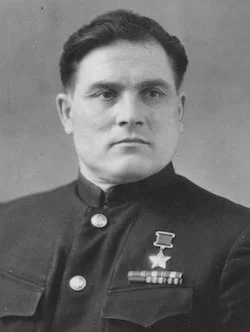
Soviet pilot Mikhail Devyataev orchestrated a remarkable escape from a Nazi concentration camp in Peenemünde, Usedom, taking nine fellow prisoners with him. This daring operation demonstrated incredible courage and resourcefulness under extreme circumstances.
The escape provided valuable intelligence about German rocket development programs. Devyataev’s heroic actions inspired resistance movements and highlighted the unbreakable spirit of those fighting against oppression.
Science and Discovery Milestones on February 8
1906 – Xerography Inventor Born
Chester Carlson entered the world, destined to revolutionize document reproduction through his invention of xerography. His childhood experiences with copying documents by hand sparked his lifelong interest in duplication technology.
Carlson’s innovative spirit would transform modern office environments and business communications. His xerographic process became the foundation for the global photocopying industry.
1919 – Skylab 4 Crew Returns

The astronauts of Skylab 4 completed their record-breaking 84-day mission aboard America’s first space station. Their extended stay in space provided crucial data about long-duration human spaceflight.
This mission represented the culmination of the Skylab program and demonstrated humanity’s ability to live and work in space. The crew’s research laid important groundwork for future space exploration endeavors.
1936 – Valerie Thomas Scientific Pioneer

Valerie Thomas was born, destined to become a groundbreaking scientist and inventor in the field of optical technology. Her early fascination with mathematics and science set the stage for remarkable achievements.
Thomas would later develop the illusion transmitter technology that revolutionized television and satellite communications. Her innovations contributed significantly to NASA’s technological capabilities and space exploration programs.
Cultural and Arts Events on February 8
1915 – Birth of a Nation Premieres

D.W. Griffith’s controversial epic film “The Birth of a Nation” premiered in Los Angeles, marking a watershed moment in cinema history. This groundbreaking production introduced innovative filming techniques while promoting deeply problematic racial themes.
The film’s technical achievements revolutionized moviemaking and established cinema as a powerful art form. However, its racist content sparked widespread protests and ongoing debates about art, responsibility, and historical representation.
1960 – Hollywood Walk of Fame Founded

The iconic Hollywood Walk of Fame was officially established, creating a permanent tribute to entertainment industry legends. This star-studded sidewalk would become one of the world’s most recognized cultural landmarks.
The Walk of Fame transformed Hollywood into a major tourist destination and cultural symbol. Its creation reflected the entertainment industry’s growing influence on American culture and global popular culture.
1998 – Iris Murdoch’s Literary Legacy
Renowned Irish-born British novelist and philosopher Iris Murdoch passed away, leaving behind an extraordinary literary legacy. Her complex novels explored themes of love, morality, and human psychology with remarkable depth and insight.
Murdoch’s philosophical training deeply influenced her fiction writing and intellectual approach. Her works continue to inspire readers and scholars worldwide, cementing her position among the greatest 20th-century writers.
Religious and Social Events on February 8
1902 – Boy Scouts of America Incorporated

William D. Boyce officially incorporated the Boy Scouts of America, establishing one of the nation’s most influential youth organizations. This milestone created a structured framework for character development and outdoor education.
The organization’s founding reflected growing concerns about youth development in an industrializing society. Scouting would profoundly impact millions of young Americans and spread the scouting movement worldwide.
1968 – Orangeburg Massacre
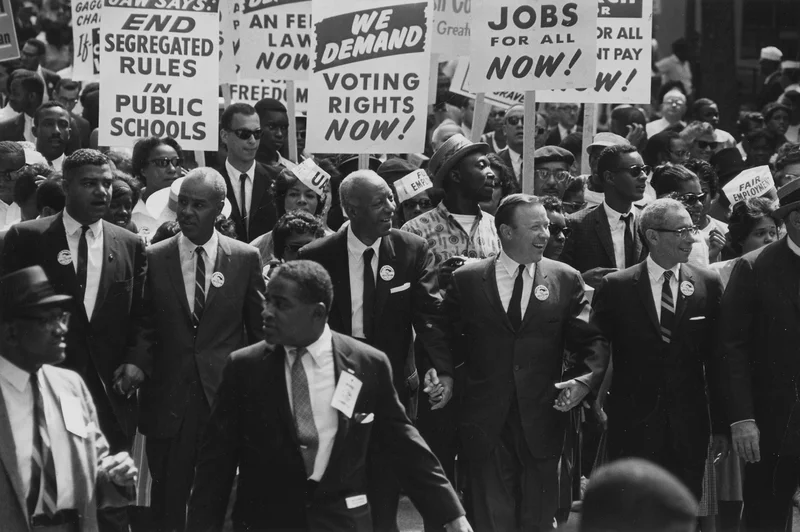
Three Black students were killed and 28 injured when police opened fire on civil rights protesters at South Carolina State University. This tragic event highlighted the violent resistance to racial integration in the American South.
The massacre demonstrated the dangerous reality faced by civil rights activists fighting for equality. This incident became a rallying point for the movement and exposed the brutal tactics used against peaceful protesters.
1962 – Charonne Station Tragedy
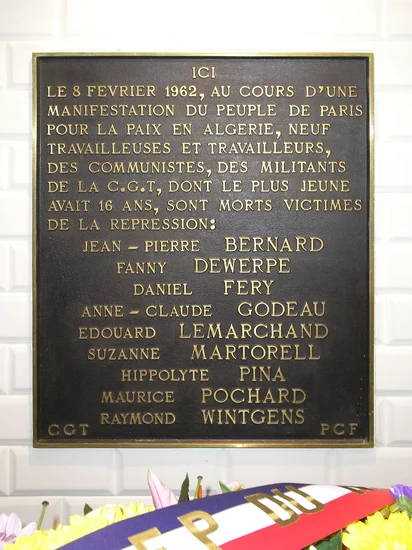
Nine protesters died at Charonne station in Paris when French police, commanded by ex-Vichy official Maurice Papon, violently suppressed a demonstration. This brutal incident shocked the French public and exposed police brutality.
The tragedy galvanized opposition to the Algerian War and highlighted the authoritarian tendencies within French law enforcement. The event became a symbol of resistance against oppression and state violence.
Business and Economic Events on February 8
1971 – NASDAQ Opens for Trading
The NASDAQ stock market index opened for its first day of trading, revolutionizing electronic securities trading. This technological innovation transformed how stocks were bought and sold in American financial markets.
NASDAQ’s electronic trading system eliminated the need for physical trading floors and increased market efficiency. The exchange would become crucial for technology companies and modern financial markets.
1983 – Shergar Kidnapping

The champion racehorse Shergar was stolen by gunmen in an alleged ransom attempt by the Provisional Irish Republican Army. This shocking crime captured international attention and highlighted the intersection of terrorism and organized crime.
The kidnapping represented one of the most audacious crimes in Irish history and demonstrated the IRA’s willingness to target valuable assets. Shergar’s disappearance remains one of Ireland’s most famous unsolved mysteries.
1982 – Business Leader John Hay Whitney Dies
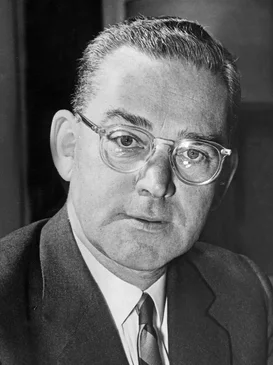
American financier and diplomat John Hay Whitney passed away, ending a distinguished career in business and public service. His investments and philanthropy significantly impacted American culture and international relations.
Whitney’s financial acumen and diplomatic service exemplified the intersection of business success and public responsibility. His legacy influenced both Wall Street practices and American foreign policy approaches.
Transportation and Infrastructure on February 8
1986 – Hinton Train Collision
A catastrophic collision between a VIA Rail passenger train and a Canadian National freight train near Hinton, Alberta, killed 23 people. This disaster became one of Canada’s worst rail accidents and prompted major safety reforms.
The collision highlighted critical deficiencies in railway safety protocols and communication systems. The tragedy led to comprehensive changes in Canadian railway operations and safety regulations.
1989 – Azores Aircraft Disaster

Independent Air Flight 1851 crashed into Pico Alto mountain while approaching Santa Maria Airport in the Azores, killing all 144 passengers aboard. This devastating accident shocked the aviation community and highlighted approach safety challenges.
The crash prompted extensive investigations into mountain approach procedures and weather-related flight safety. The tragedy led to improved aviation safety protocols for challenging terrain approaches.
2010 – Afghan Avalanche Catastrophe

A massive storm in Afghanistan’s Hindu Kush mountains triggered devastating avalanches that buried over two miles of road, killing at least 172 people and trapping over 2,000 others. This natural disaster highlighted the vulnerability of mountain communities.
The catastrophe demonstrated the deadly power of natural forces in mountainous regions and the challenges of emergency response in remote areas. International aid efforts mobilized to assist the affected communities.
Sports and Recreation on February 8
1931 – James Dean Athletic Legend
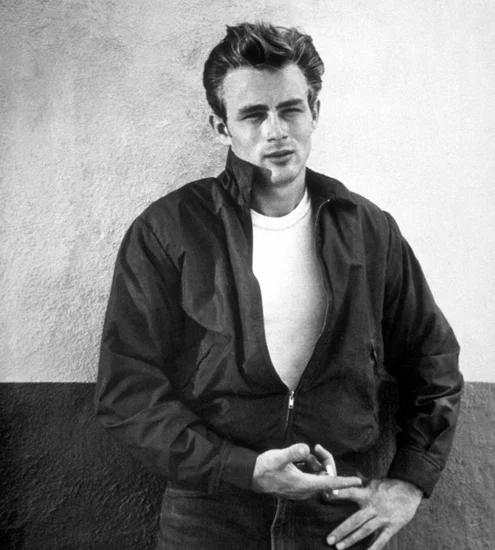
James Dean was born, though better known for his acting career, he was also an accomplished athlete in his youth. His natural athleticism and competitive spirit influenced his later performances and cultural impact.
Dean’s athletic background contributed to his dynamic screen presence and physical acting style. His early sports participation shaped his approach to performance and personal discipline.
1960 – Dino Ciccarelli Hockey Star

Canadian ice hockey player Dino Ciccarelli was born, destined to become one of the NHL’s most prolific scorers. His aggressive playing style and goal-scoring ability would make him a fan favorite throughout his career.
Ciccarelli’s professional hockey career spanned multiple teams and earned him recognition as one of the game’s great offensive players. His achievements helped elevate the profile of professional hockey in North America.
1989 – Julio Jones Football Excellence

Future NFL star Julio Jones was born, destined to become one of professional football’s most dominant wide receivers. His exceptional athletic ability and work ethic would define his path to gridiron greatness.
Jones would later establish himself as one of the most productive pass catchers in NFL history. His career achievements would inspire young athletes and demonstrate the rewards of dedication to athletic excellence.
Notable Births on February 8
1902 – Tunku Abdul Rahman Malaysian Leader

Tunku Abdul Rahman was born, destined to become Malaysia’s first Prime Minister and a key figure in Southeast Asian independence movements. His diplomatic skills and vision for national unity would shape Malaysia’s early development.
Rahman’s leadership during Malaysia’s formation demonstrated exceptional political acumen and commitment to multicultural harmony. His legacy continues to influence Malaysian politics and national identity.
1921 – Lana Turner Hollywood Icon

American actress Lana Turner was born, destined to become one of Hollywood’s most glamorous and controversial stars. Her dramatic personal life and screen presence made her a defining figure of Hollywood’s golden age.
Turner’s career spanned decades and included both critical acclaim and tabloid headlines. Her influence on American popular culture and the entertainment industry remains significant.
1922 – Audrey Meadows Television Pioneer

Audrey Meadows was born, later becoming famous for her role as Alice Kramden on “The Honeymooners.” Her comedic timing and strong screen presence helped define early television comedy.
Meadows’ work in television’s formative years established her as a pioneering performer in the new medium. Her contributions to comedy and television entertainment continue to influence performers today.
1925 – Jack Lemmon Acting Legend

American actor Jack Lemmon was born, destined to become one of cinema’s most versatile and beloved performers. His ability to seamlessly transition between comedy and drama made him a unique talent in Hollywood.
Lemmon’s career achievements included multiple Academy Awards and collaborations with the greatest directors and actors of his era. His performances continue to entertain and inspire audiences worldwide.
1931 – James Dean Cultural Icon
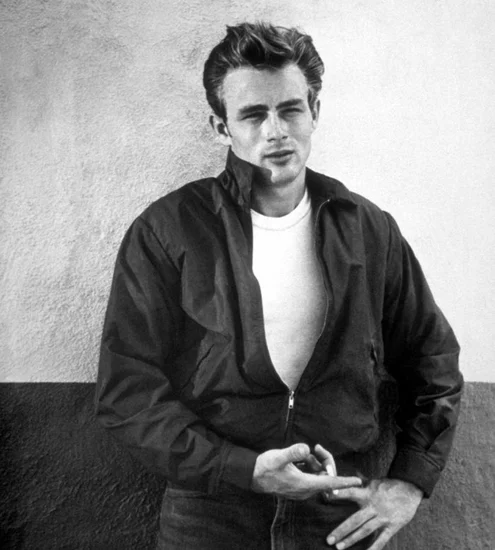
James Dean was born in Marion, Indiana, destined to become one of America’s most enduring cultural icons despite his brief career. His rebellious screen persona and tragic early death created a lasting mythology.
Dean’s influence on popular culture extended far beyond his three major films. His image and attitude defined youth rebellion and continue to resonate with new generations of fans.
1955 – John Grisham Literary Success

American lawyer and author John Grisham was born, later becoming one of the world’s most successful legal thriller writers. His legal background provided authentic detail for his compelling courtroom dramas.
Grisham’s novels have sold millions of copies worldwide and spawned numerous film adaptations. His success demonstrated the public’s appetite for legal drama and established him as a master of the genre.
1974 – Seth Green Entertainment Innovator

Seth Green was born, destined to become a versatile actor, voice artist, and producer known for his work in animation and comedy. His creative range spans multiple entertainment mediums and generations.
Green’s contributions to animation and comedy have influenced contemporary entertainment culture. His work continues to push creative boundaries and engage audiences across different platforms.
Notable Deaths on February 8
1921 – Peter Kropotkin Anarchist Theorist
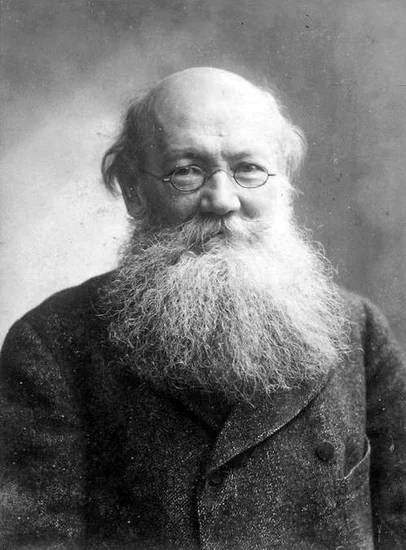
Russian zoologist, geographer, and anarchist philosopher Peter Kropotkin passed away, ending a life dedicated to scientific research and political theory. His writings on mutual aid and anarchism influenced political movements worldwide.
Kropotkin’s scientific background informed his political philosophy and challenged traditional notions of competition and cooperation. His ideas continue to influence political theorists and social scientists.
1957 – John von Neumann Mathematical Genius

Hungarian-American mathematician and physicist John von Neumann died, leaving behind revolutionary contributions to mathematics, computer science, and game theory. His work laid foundations for modern computing and economic theory.
Von Neumann’s intellectual achievements spanned multiple disciplines and influenced the development of nuclear weapons, computer technology, and mathematical theory. His legacy continues to impact scientific and technological advancement.
1975 – Robert Robinson Chemistry Nobel Laureate
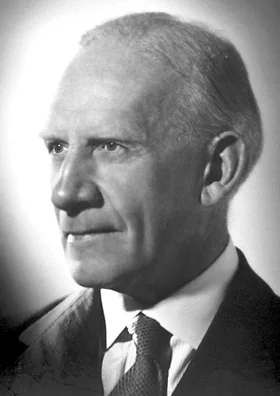
English chemist Robert Robinson passed away, concluding a distinguished career in organic chemistry research. His work on plant alkaloids and synthetic chemistry earned him the Nobel Prize in Chemistry.
Robinson’s chemical research advanced understanding of natural compounds and synthetic processes. His contributions to chemistry education and research methodology influenced generations of scientists.
1990 – Del Shannon Rock and Roll Pioneer
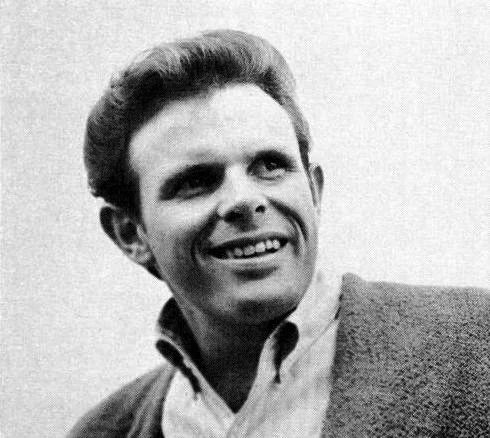
American singer-songwriter Del Shannon died, ending a career that included the classic hit “Runaway” and contributions to early rock and roll. His innovative use of electronic instruments influenced popular music development.
Shannon’s musical innovations and distinctive falsetto voice made him a unique figure in rock and roll history. His influence on popular music continues to be recognized by musicians and critics.
1998 – Halldór Laxness Literature Nobel Prize Winner
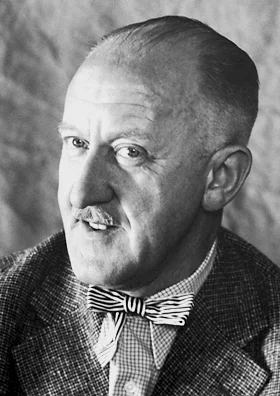
Icelandic author, poet, and playwright Halldór Laxness passed away, leaving behind a rich literary legacy that earned him the Nobel Prize in Literature. His works explored Icelandic culture and universal human themes.
Laxness’s writing brought international attention to Icelandic literature and culture. His novels and plays continue to be studied and appreciated for their artistic merit and cultural significance.
2007 – Anna Nicole Smith Celebrity Figure

American model and actress Anna Nicole Smith died suddenly, ending a controversial life in the public eye. Her legal battles and personal struggles made her a constant subject of media attention.
Smith’s life and death highlighted the challenges of celebrity culture and media scrutiny. Her story continues to influence discussions about fame, fortune, and personal tragedy in the modern era.
Holidays and Observances on February 8
Christian Feast Day Celebrations
February 8 marks the feast day of several Christian saints, including Josephine Bakhita, the patron saint of Sudan and human trafficking survivors. These observances reflect the diverse traditions within Christian liturgical calendars.
Saint Josephine Bakhita’s story of survival and faith continues to inspire believers worldwide. Her canonization represents the Catholic Church’s recognition of African saints and their contributions to Christian tradition.
Parinirvana Day Buddhist Observance
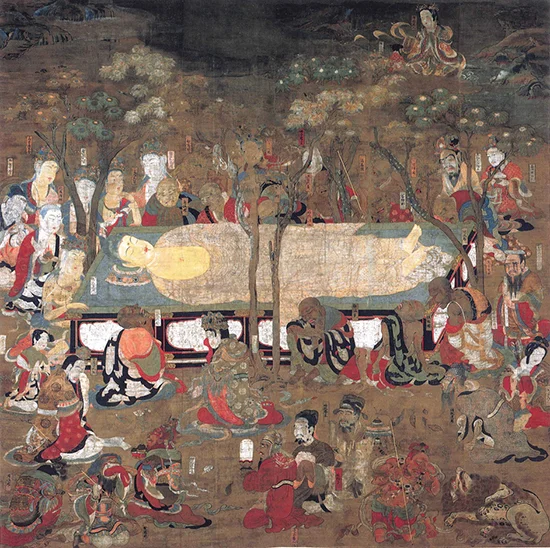
Some Mahayana Buddhist traditions observe Parinirvana Day on February 8, commemorating the Buddha’s final passing into nirvana. This solemn observance reflects on the Buddha’s teachings and the impermanence of life.
The observance encourages reflection on Buddhist principles and the path to enlightenment. Different Buddhist traditions may observe this holiday on various dates, reflecting the diversity within Buddhist practice.
Prešeren Day Slovenian Culture
Slovenia celebrates Prešeren Day, honoring the country’s greatest poet France Prešeren and Slovenian cultural heritage. This national holiday emphasizes the importance of literature and artistic expression in Slovenian identity.
The celebration includes cultural events, poetry readings, and artistic performances throughout Slovenia. Prešeren Day demonstrates the central role of literature and culture in national identity and pride.
Military Foundation Day North Korea

North Korea observes Military Foundation Day, commemorating the establishment of the Korean People’s Army. This holiday reflects the central role of military power in North Korean political ideology and national identity.
The observance typically includes military parades and demonstrations of military capabilities. The holiday reinforces the regime’s emphasis on military strength and national defense preparedness.
